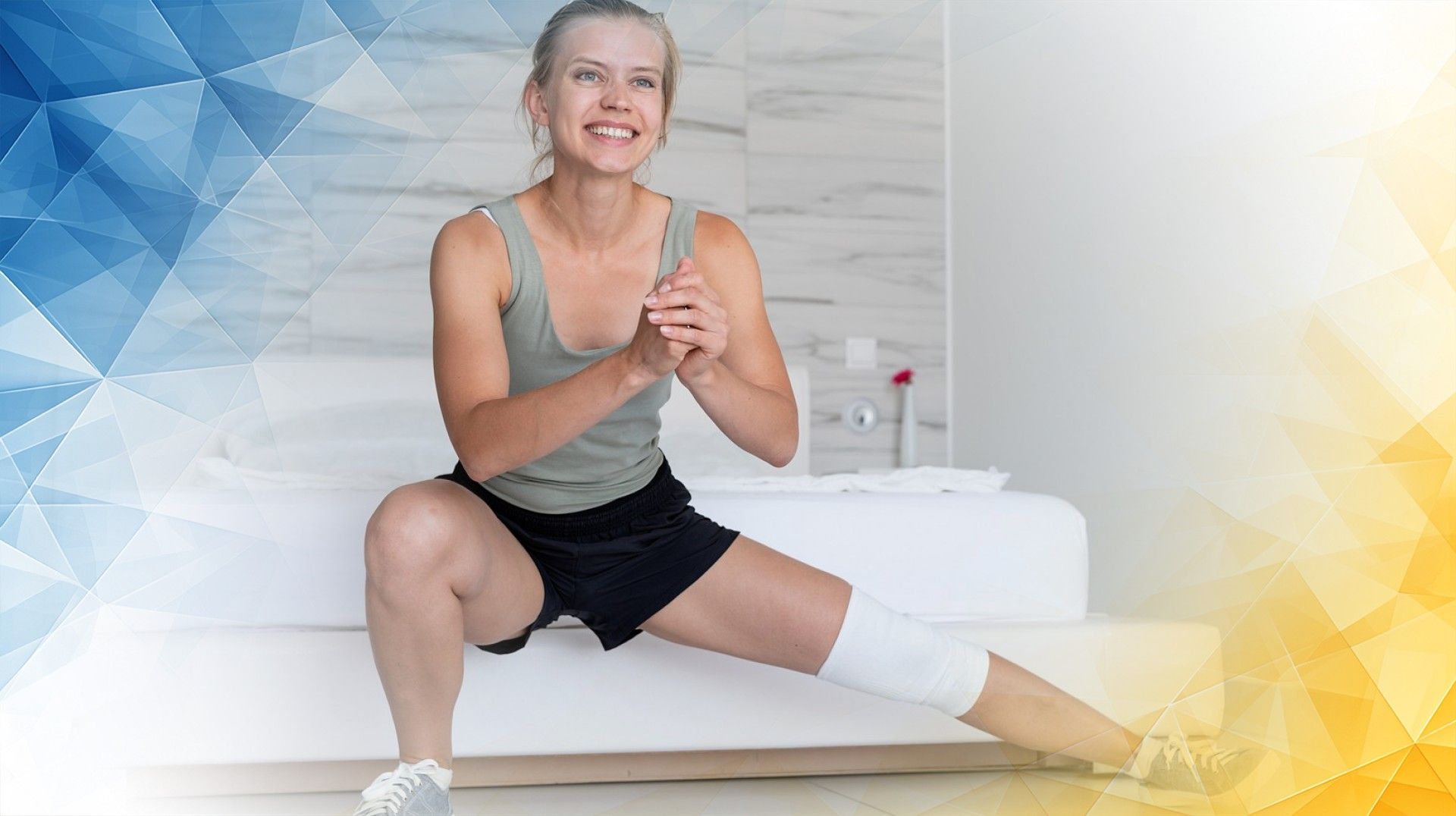



Introduction: Why Knee Pain Happens During Pregnancy—and How You Can Find Relief
Pregnancy is a remarkable journey, but it often brings its share of aches and pains—especially in your knees. If you’re feeling discomfort or stiffness in this area, you’re definitely not alone. Many women experience knee pain as their bodies adjust to the demands of carrying a growing baby. Hormonal changes , added weight, and shifts in posture and movement all play a role.
The good news? There are practical, science-backed strategies that can help ease your knee pain and help you move with confidence. In this article, we’ll explore why knee pain happens during pregnancy and share effective ways to find relief.
What’s Behind Knee Pain in Pregnancy?
Understanding the causes of knee pain during pregnancy can help you take steps toward relief. As your body supports your baby’s growth, your posture and the alignment of your hips, knees, and feet may change. These shifts can impact how your knees handle your weight and movement .
One major factor is the way your foot arches change—often measured by the “arch index,” which looks at the shape and support under your feet. Changes in your pelvic tilt can also put more pressure on your knees. Together, these adjustments can strain the muscles and ligaments around your knees, leading to discomfort, especially after standing or walking.
According to research, musculoskeletal problems are common during pregnancy. Hormonal and physical changes can lead to issues like muscle strain , cramps, fatigue, and knee soreness. In rare cases, sudden and severe knee pain during pregnancy could signal a specific condition known as transient osteoporosis of pregnancy. If you ever experience sudden, intense knee pain , it’s important to consult your doctor to rule out serious causes.
How Common Is Knee Pain —and Who’s Most at Risk?
Knee pain affects many pregnant women, especially in the third trimester. As your pregnancy progresses, your body carries more weight, and pregnancy hormones make your joints looser in preparation for childbirth. While this flexibility helps during delivery, it can also make your knees feel more unstable or achy .
In fact, studies show that nearly three out of four women experience knee pain in their third trimester. Many seek help from their doctor or a physiotherapist to manage their discomfort. The good news is that for most women, pregnancy- related knee pain improves after delivery. However, if your pain lingers, ongoing care may be needed—so keep an eye on your symptoms and seek help if needed.
Simple, Effective Ways to Ease Knee Pain
The best part? There are gentle, safe strategies you can try at home to help soothe your knees :
If these steps don’t bring enough relief, physical therapy can help. Therapists can use hands-on techniques, such as gentle massage and stretching, to release tension in your knees . Research suggests that these approaches can be especially effective when paired with targeted exercises to rebuild strength and support.
Non-drug treatments like rest, ice, and stretching are typically safe and beneficial during pregnancy. Just remember, it’s important to introduce new activities gradually and pay attention to your posture to minimize extra strain on your knees .
When to Talk to a Professional
Many women manage knee pain successfully with self-care, but it’s important to recognize when you need extra support. If your pain is severe, persistent, or comes with swelling or trouble walking, reach out to a healthcare provider.
Physiotherapists and doctors who are familiar with pregnancy can create a care plan tailored to your needs. Don’t hesitate to ask for help—taking proactive steps is a positive way to keep feeling your best.
Also, if you ever develop sudden, intense knee pain , it’s important to get checked to rule out rare conditions like transient osteoporosis of pregnancy.
If your knee pain doesn ’t improve, your doctor may recommend physical therapy or further evaluation to ensure you get the right care.
Bringing It All Together: Take Charge of Your Knee Health
While knee pain during pregnancy can be frustrating, it doesn’t have to slow you down. Understanding what’s behind your discomfort and using smart, science-backed strategies can help you stay comfortable and active as your body changes.
Remember, you’re not alone, and support is available. Whether through home care or professional help, you have options to feel better and enjoy these special months. Take care of your knees so you can focus on what truly matters—enjoying this exciting chapter with confidence and ease.
Narjis, S. F. (2022). Prevalence of knee pain in women during third trimester of pregnancy. Pakistan Journal of Physical Therapy (PJPT).
Sriwongtong, M. (2019). Bilateral knee pain in pregnancy. Medicine & Science in Sports & Exercise, 51(6S), 483. https://doi.org/10.1249/01.mss.0000561955.05625.6c
García Renedo, R. J., Ortiz Menéndez, A., Giráldez Sánchez, M., Ribera Zabalbeascoa, J., & Gonzálo, D. (2010). Acute knee pain in pregnancy. Case report of Regional Transient Osteoporosis. Reumatología Clínica (English Edition), 6(2), 99-101. https://doi.org/10.1016/s2173-5743(10)70022-8
All our treatments are selected to help patients achieve the best possible outcomes and return to the quality of life they deserve. Get in touch if you have any questions.
At London Cartilage Clinic, we are constantly staying up-to-date on the latest treatment options for knee injuries and ongoing knee health issues. As a result, our patients have access to the best equipment, techniques, and expertise in the field, whether it’s for cartilage repair, regeneration, or replacement.
For the best in patient care and cartilage knowledge, contact London Cartilage Clinic today.
At London Cartilage Clinic, our team has spent years gaining an in-depth understanding of human biology and the skills necessary to provide a wide range of cartilage treatments. It’s our mission to administer comprehensive care through innovative solutions targeted at key areas, including cartilage injuries. During an initial consultation, one of our medical professionals will establish which path forward is best for you.
Contact us if you have any questions about the various treatment methods on offer.
Legal & Medical Disclaimer
This article is written by an independent contributor and reflects their own views and experience, not necessarily those of londoncartilage.com. It is provided for general information and education only and does not constitute medical advice, diagnosis, or treatment.
Always seek personalised advice from a qualified healthcare professional before making decisions about your health. londoncartilage.com accepts no responsibility for errors, omissions, third-party content, or any loss, damage, or injury arising from reliance on this material. If you believe this article contains inaccurate or infringing content, please contact us at [email protected].